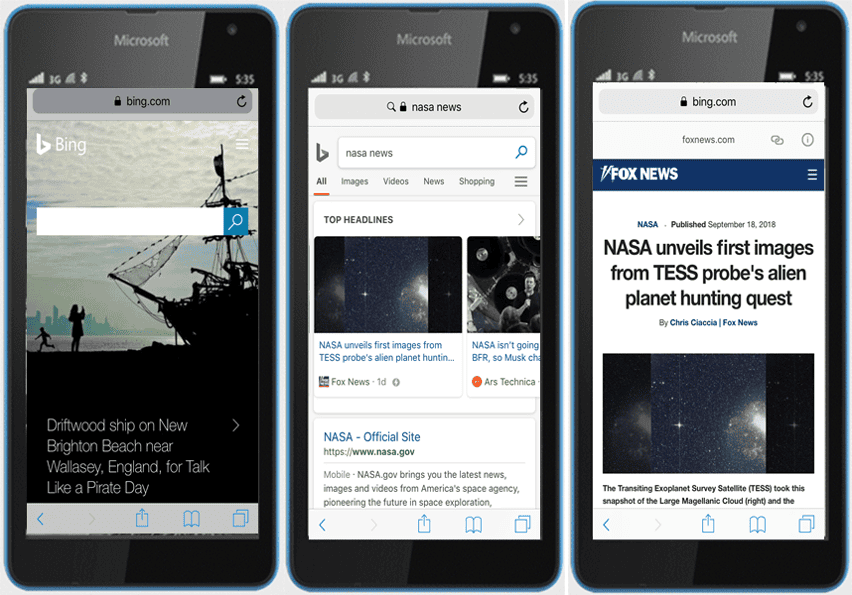Bing has officially announced the release of the Bing Accelerated Mobile Pages viewer. This means that people using Bing to search on mobile devices can access AMP-enabled pages directly from the search results – previously only available on Google.
While AMP is originally a Google project, Google started it for it to become a standard thing across the web. Whether AMP becomes standard is yet to be seen – but this push from Bing is another step towards this possibility.
On Monday, the 17th we started the first phase of the global roll out of this AMP viewer and AMP carrousel in the United States for the news carrousel. We will continue the phased roll out to more web sites, more countries and regions and other links in the search results pages. Also, if you are in the United States, try it out on your mobile device by navigating to https://www.bing.com and search for news related queries and tapping the search results labelled with the AMP icon:
.

Google began showing AMP-enabled stores around 2 years ago, so Bing has had some catching up to do. Bing did join the AMP project back in 2016, but the viewer wasn’t available until this year.
Official advice from Bing
Microsoft gave the following advice for AMP webmasters and advertisers:
The AMP protocol offers the ability to cache and serve cached copied AMP content that is published on the web, providing faster user experiences on Bing. In order to enable your AMP published content within Bing, you need to allow the Bingbot (our crawler) to fetch AMP content and allow cross-origin resource sharing (CORS) for bing-amp.com domain. Most AMP enabled sites and advertisers have already authorized the CORS sharing for the ampproject.org domain, but now need to also bing-amp.com to the allowed list.
How does this change the search experience on Bing?
All it really changes is that AMP-enabled news stories will load faster on mobile devices.
This means news publishers have an added incentive to add AMP, but it’s unlikely if they hadn’t already done it for Google, Bing isn’t going to be hugely enticing. But now a search engine other than Google is serving up AMP, it perhaps adds a more promising future for the AMP project.
While Bing hasn’t mentioned if AMP impacts rankings at all, the AMP logo does give users that extra reason to click your result over another without the logo.
Google has also said AMP does not impact the rank in the search results – yet there are sections dedicated to serving up AMP-enabled pages. So this is not entirely true.

